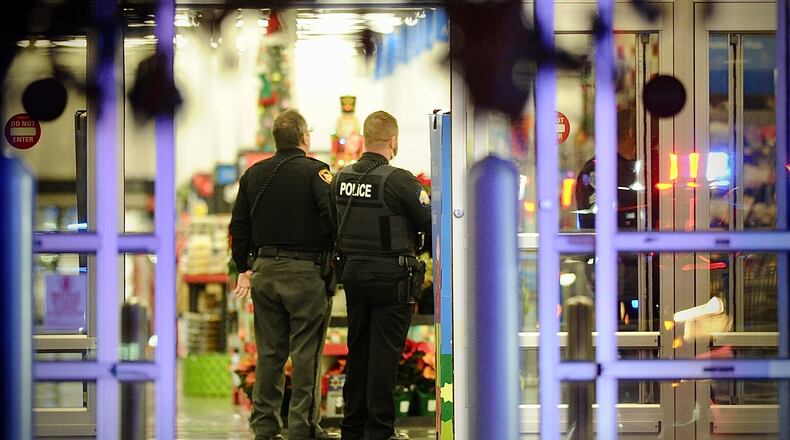More should be done to protect the public from people who may be violent, gun control advocates say, while gun rights activists say there needs to be due process before preventing someone from buying a gun because of their mental health.
“The public deserves to be protected from gun violence from all potential sources, particularly from people who have violence and hate in their profiles and those who are struggling with mental illnesses,” the Rev. Jack Sullivan, Jr., executive director of the Ohio Council of Churches.
The public needs to be able to trust the mental health adjudication process will take place, Sullivan said.
Fairborn police brought Jones to Soin Medical Center twice in 2022 on a pink slip — an application for emergency admission when someone is deemed a danger to themselves or others — due to Jones experiencing suicidal ideation. A lack of records in local probate courts indicate he never went through the mental health adjudication process due to nobody filing an affidavit of mental illness with a probate court to start that process.
“Protection must include full and complete adjudication of people who are in custody for potentially harming themselves and others. We all deserve to trust that such adjudication will take place,” Sullivan said.
Staff at Soin were not required to refer the case to the courts. Officials with Kettering Health, the parent organization of Soin, would not comment on Jones’ treatment citing federal privacy laws.
What do politicians say?
Local politicians either declined to comment or reinforced their commitment to gun rights, the latter saying gun control won’t prevent crime.
Beavercreek’s mayor Bob Stone declined to comment on whether or not more should be done to address this gap created when someone gets a pink slip but doesn’t go through the adjudication process.
“This is still an active investigation,” Stone said.
Local legislators did not call for any changes to the pink slip system, such as more monitoring or a way to check if someone who had received a pink slip had their case transferred to probate court.
“I am a strong Second Amendment supporter. I do not believe that gun control measures will prevent crimes,” said state Rep. Brian Lampton, R-Beavercreek.
State Sen. Bob Hackett, whose district includes Beavercreek, did not respond to requests for comment.
Losing access to buying a gun should only come after there has been due process, said Dean Rieck, executive director of the Buckeye Firearms Association.
“We certainly wouldn’t want to have people’s rights taken away,” said Rieck. There needs to be due process through a court before someone loses their ability to buy or own a gun, he said.
“You have to have legal representation,” he said.
Gun rights advocates like the Buckeye Firearms Association are opposed to “Red Flag” laws, Rieck said. Red flag laws are risk-based gun removal laws, sometimes called extreme risk protection orders, where a state court can order for the temporary removal of guns from someone’s possession if they believe that person to be a risk to themselves or others and prevent them purchasing a gun.
“Your rights should not be taken away until there is complete due process,” Rieck said. “This is the problem with a lot of the red flag laws is that they reverse that and you basically have your rights taken away.”
Mental health advocates
Mental health does not indicate future gun violence, mental health advocates have previously told the Dayton Daily News.
“Mental illness is not an indicator for gun violence, so leveraging a diagnosis of mental illness for background checks or other gun violence prevention measure is ineffective,” said Luke Russell, executive director for the National Alliance on Mental Illness (NAMI) of Ohio.
NAMI’s policy positions around gun violence focus on harm reduction and emphasizing the risk of suicide, as opposed to the risk of mass violence or harm to someone else, Russell said.
People with mental illness tend to be the victims of gun violence, NAMI says, but the organization also adds most firearm deaths are suicides and firearm deaths are the most common method used in suicides. In 2021, there were 26,328 firearm suicides out of more than 48,000 suicide deaths, according to the Centers for Disease Control and Prevention. NAMI suggests more funding should be directed at research on gun violence.
About the Author

